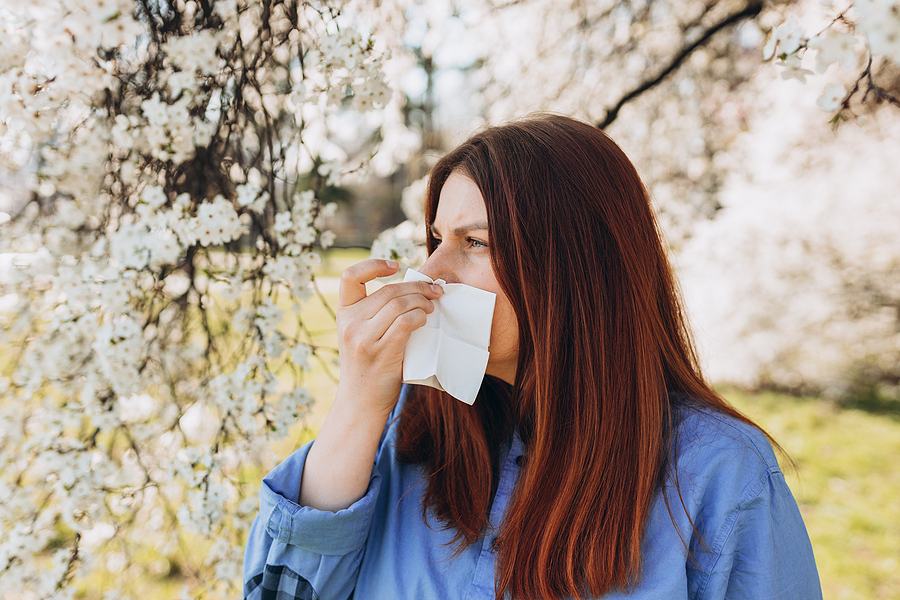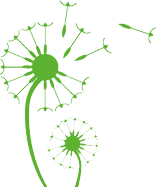
As the warm weather approaches and the first buds of spring appear, so does the season of sneezes and sniffles for many. At our allergist's office, we witness firsthand the impact of seasonal allergies on our patients' lives.
With spring in the air, allergens like pollen from trees and grass become more prevalent, causing discomfort and disrupting daily activities for those sensitive to these triggers.
Here's how to manage seasonal allergies, ensuring you can enjoy the beauty of spring without the burden of symptoms.
What are the Symptoms of Spring Allergies?
Seasonal allergies, also known as allergic rhinitis or hay fever, occur when your immune system reacts to allergens like pollen and releases histamines to fight against them. Some of the most common symptoms are sneezing, itchy nose or eyes, and nasal congestion, but can also include:
- Red or watery eyes that can be itchy
- Sore or scratchy throat
- Postnasal drip
- Dry, itchy skin
- Coughing
- Head congestion
Pollen isn’t the only seasonal trigger, but it is the most common. You may find during spring cleaning that you’re sneezing more due to dust and pet dander. These reactions are your body's way of defending itself against foreign substances. Recognizing the signs early and understanding what triggers your allergies is the first step toward effective management.
How to Manage Spring Allergy Symptoms
If you are noticing symptoms like itchy or watery eyes, nasal congestion, and sneezing, it could be time to see an allergist and schedule allergy testing to determine what you are allergic to.
Allergies vary from person to person and even year to year, but there are some steps to take to reduce exposure to allergens like pollen and ways to manage overall symptoms.
Start Medications Early
You don’t want to play catch up with allergy symptoms, so starting allergy medications before symptoms begin is important to manage them. Antihistamines, nasal sprays, and eye drops are more effective when taken this way, as they can help lessen an allergic reaction.
Consult with your allergist about which medications are best for you and when to start taking them.
Minimize Exposure to Allergens
Reducing your exposure to allergens can significantly lessen symptoms. There are a few ways to help minimize the severity of them.
- Limit exposure to pollen: On days when pollen is high or it’s windy, stay inside and keep windows and doors closed. Opt for air conditioning or a fan to cool down on warm days. Take your shoes off at the door to keep from tracking pollen and other allergens throughout your home and clean the floors often.
- Clean off after being outdoors: Pollen can collect on your skin and hair throughout the day. Shower before bed to remove these allergens and reduce nighttime symptoms. If you are spending time outdoors and doing yard work, make sure to shower and change your clothing afterward.
- Track pollen count: Many websites and apps provide daily pollen forecasts. On days when counts are particularly high, try to stay indoors as much as possible. You can check the pollen count on our website before heading out.
Consider Lifestyle Adjustments
In addition to medical treatments, lifestyle adjustments can play a significant role in managing seasonal allergies.
- Diet: A balanced diet rich in fruits, vegetables, and omega-3 fatty acids is beneficial.
- Stress Management: Stress can worsen allergy symptoms. Techniques such as yoga, meditation, and regular exercise can help manage stress levels.
- Stay Hydrated: Adequate hydration can alleviate nasal congestion and coughing by helping thin out mucus and avoid dehydration, which can sometimes make symptoms worse.
Seek Professional Help
If you're unsure what triggers your allergies, it's time to see an allergist. Allergy testing can identify specific allergens so you are aware of what you need to avoid or limit exposure to. Your doctor can create an individualized treatment plan to meet your needs and answer any questions. Treatments may include prescription medications and allergy shots (immunotherapy).
Let Richmond Allergy Doctors Help
Seasonal allergies can be challenging, but with the right approach, they can be managed effectively. By starting treatments early, minimizing exposure to allergens, and seeking professional help, you can enjoy the spring season with minimal discomfort.
Your allergist is your partner in managing your allergies, so don't hesitate to reach out for help and call our office at 804-285-7420 to schedule an appointment.









